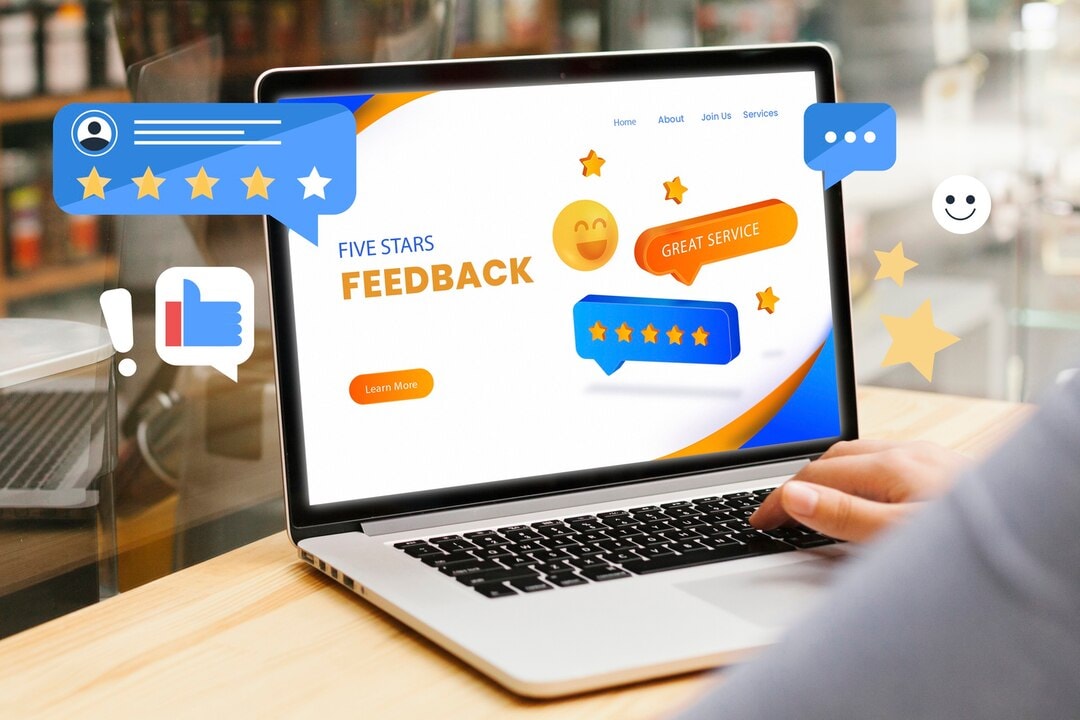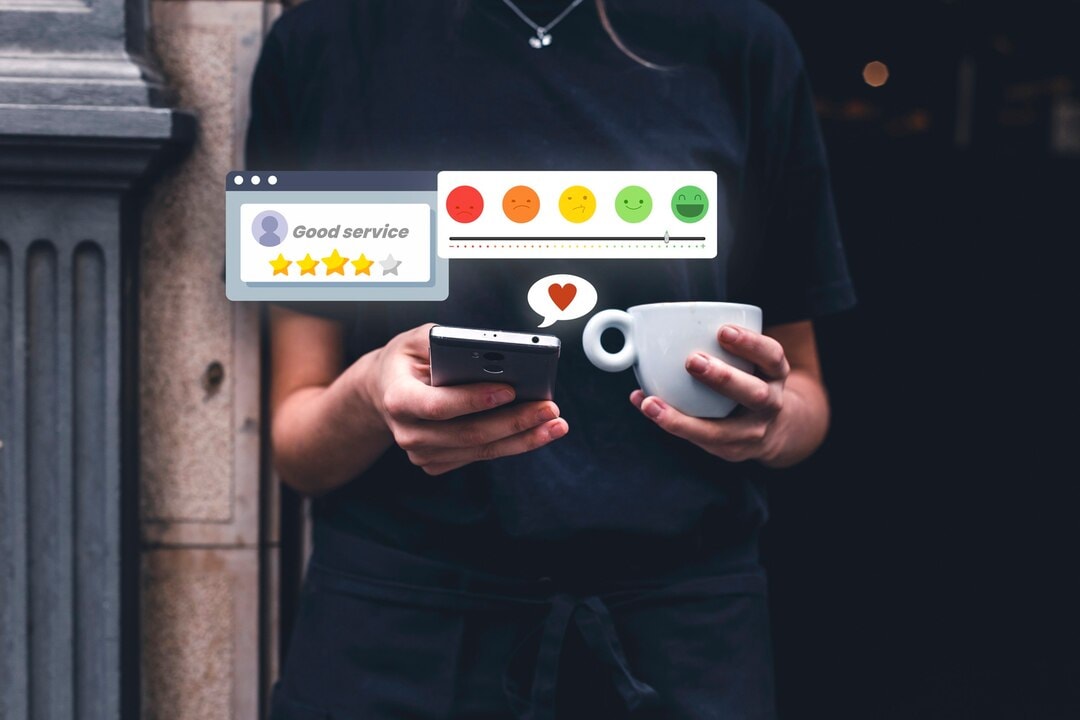New Frontiers in Customer Loyalty: Introduction
The retail and ecommerce environment is in a breakneck transformation, and at the center of that is artificial intelligence (AI).
As consumers were coming into digital commerce, it ramped up their expectations: personalized experiences, real-time support, and seamless interaction across channels.
AI now takes center stage in transforming the customer journey and loyalty by studying consumer behavior, need forecasting, and hyper- personalizations.
Predictive analytics to AI-powered chatbots, companies are using such technology to connect consumers in deeper and more meaningful ways aimed at improving retention and life value.
Here, we talk about how AI is redesigning consumer behavior through personalized shopping and engagement strategies because of retention.

1. Knowing Your Consumer Through AI
Analytics in Consumer Behavior: It Is to Provide Insight into Customers
AI can arguably be put in that category as one of the amazing contributions to improving customer loyalty because it has the capacity for processing enormous volumes of data and for extracting good insights from them.
Conventional approaches relied on surveys, history of purchases, and surface metrics. AI penetrates much deeper.
Machine learning algorithms sift through data from various sources: the main areas where website activity, social media posts, purchase history, and even customers' behavior in-store create patterns.
Those patterns will inform retailers about what drives the customers, what they like, and how they present their behavior along different touchpoints.
Customer Behavior Prediction: Needs Prediction and Preference.
AI-enabled predictive analytics allow an organization to tell even the needs that had yet to occur.
By looking at its past behavior with repeat customers and recognizing a pattern, AI can suggest when this particular customer will will make a purchase, which product he will buy, or what will drive his decision.
For instance, a computer system that examines a customer's shopping history and cart abandon data can
anticipate when they require a reminder or a discount to complete a purchase.
Retailers can then personalize incentives at the correct time, raising the probability purchase frequency of conversion.
AI DE-DRIVEN CUSTOMER ENGAGEMENT: BEYOND GENERIC INTERACTIONS
One-size-fits-all is no longer appropriate when it comes to marketing. AI allows businesses to transcend generic strokes of interactions and tailor messages better to individualized preferences.
AI-driven chatbots, recommendation engines, and dynamic email campaigns collect data from customers, allowing them to engage in real time with specific content, promotions, and support.
Dynamic Customer Engagement: Real-Time Interaction
AI doesn't only look back on history; it reacts to what the customer is doing now.
In the case of shoppers entering the site and hovering over a coveted product, AI triggers a chatbot to provide instant support or recommend additional related products.
With an interactive approach to engagement, this type of service feels like real-time shopping and would definitely boost customer satisfaction and loyalty.

2. CUSTOMIZED EXPERIENCES TO DRIVE LOYALTY
Personalized Customer Experiences: The Key to Retention
Today's customers want personalized experiences. AI enables companies to give hyper-personalized interactions, keeping in mind individual interests, past purchases, and browsing behavior.
The research indicates that personalized experiences promote engagement, enhance expenditure, and foster customer loyalty.
Providing Personalized Shopping Experiences: Both Online and Offline Shopping
When shopping at an online retail outlet, AI algorithm-driven recommendation engines present products according to how users behave and the likelihood to buy.
For brick-and-mortar retail, AI-enhanced mirrors and touch screens provide personalized recommendations and style suggestions, further enhancing the shopping experience through interactive engagement.
Personalized Product Recommendations Using AI Algorithms
Amazon, Netflix, and Spotify have set the precedent for AI-based recommendations. Observing user preferences, AI compiles a list of products, picks movies, or plays a floating tune.
Retailers can use this technology to engage their shoppers, thus stimulating repeat business and purchasing.
The AI Era: Email Marketing Hyper-Targeted Campaigns
Email marketing remains a robust tool for enhancing customer loyalty and retention, but AI has taken it a notch higher.
AI-based email marketing software provides segmentation of audiences by behavioral tendencies, purchase patterns, and levels of engagement so that every customer sees only that content and offer which is really relevant to them.
For example, a customer who regularly buys skincare items will receive suggestions for complementary items and personalized discounts through highly targeted AI-driven email campaigns-an effective marketing strategy used to encourage repeat purchases.

3. AI Tools Powering Loyalty Programs
AI in Loyalty Programs: Beyond Points and Incentives
The traditional point systems of loyalty programs have only been modernized by AI giving rewards that are momentous and targeted.
AI studies consumer behavior and designs personalized rewards, and memorable experiences that satisfy the individual customer's intent.
For example, instead of a generic 10% off, an AI-powered loyalty program might reward a product free of charge, which relates to the customer's interests, thereby making that reward a worthwhile consideration.
Optimizing Loyalty Programs-Based on AI Personalization of Incentives
By optimizing loyalty programs to discover which incentives are best at aggregating participation, AI makes their operations far more effective.
In assessing different rewards for motivating customers, such as discount offers, privileged access, or experiential rewards, AI can, therefore, guide the sustainability of the program.
Technology for Customer Loyalty: Indispensable Accessories of Modern Enterprises
Several AI instruments are changing the face of loyalty programs some examples being:
AI-powered chatbots for instant customer assistance and referral.
Predictive analytics for foreseeing customers' behaviour.
Personalized recommendation systems for enhancing shopping experiences
Dynamic pricing engines that offer discounts tailor rewards based on individual customer behavior
Ecommerce Chatbots for Real-Time Support and Engagement
AI chatbots previously restricted to FAQs now ensure customer loyalty is in good hands. These intelligent bots assist customers with product recommendations, order status and offer customer-specific discounts for a seamless shopping experience.

4. The training information goes up to 2023, October.
Smart Retail: Blending AI with Customer Experiences in Shops
AI Inventory Management: Making Customer Favorites Always Available
Nothing annoys customers more than not finding an article they love at the store. AI-based inventory management systems monitor customer purchasing patterns and forecast demand in order to keep popular merchandise well-stocked.
Cashierless Checkout Technology: The Convenient Shopping Experience.
Giant retailers like Amazon are the pioneers in cashierless checkout technology, whereby customers get in, pick products, and leave without queuing in line. AI cameras and sensors watch purchases, so customers have a smooth and calming shopping experience.
Point of Sale Personalized Offers Using Customer Data
At the time of checkout, recommendations based on customers' information and in-store interactions.
For instance, a shopper purchasing a skin product might be offered an extra discount on first purchase of a complementary product to enhance their experience.

5. Customer Service Enhancement with AI
Predictive Customer Service: Solving Problems Before They Arise
AI has provided organizations the ability to catch potential customer issues early. Predictive analytics can pinpoint indicators of customer dissatisfaction, such as high return rates or negative product reviews, and allow companies to address these concerns proactively to retain consumers.
AI can analyze customer behavior to identify repeat, particular brand and those at risk for churn. When existing customers suddenly drop in spending or stop engaging with emails, classic example, AI can trigger tailored offers or communications to try to win them back before they become lost customers.

6. AI and the Future of Loyalty Programs
Future Loyalty Programs With a Shift in Focus: From Transactional to Emotional Connectedness
Onward, customer loyalty will be built on emotional connections. AI allows brands to gain insights into the emotions, preferences, and motivations of a customer, thus converting loyalty programs from simple transactions.
An Omnichannel Data Approach for Consistent Loyalty Experiences
AI-enabled customer loyalty helps the programs create a seamless customer experience by bringing together the various channels-from online, to in-store, to mobile.
Online or in-store purchases or interactions over social media; AI makes sure the entire journey is consistent and personalized.
AI in Making New Pathways in Customer-Brand Relationship
As AI will evolve, customer loyalty will become emotional, instinctive, and very personal for the brands concerned.
By embracing AI-led loyalty, the brands would work towards not only keeping customers but also building long-standing relationships that will eventually fuel their business's long-term growth.

In summary, what we think
AI is changing the way a business approaches establishing loyalty through customized shopping experiences, predictive customer analytics, and frictionless interaction.
Companies that adopt AI-based brand loyalty programs will gain the first-mover advantage to significantly enhance customer retention and thus the business will be able to create a sustainable competitive advantage.
Some Key Steps to Leverage AI in Customer Loyalty Programs
1. Set aside money for customer analytics dealing with all behavioral factors using AI.
2. Add AI recommendations to customer touch points so that they can be automated.
3. Develop a new award and incentive-based loyalty program by the use of AI.
4. Leave the door open for AI chatbots in real-time engagement and interaction with customers.
5. Link the customer data together from all the channels achieve a seamless customer experience.
Final Thoughts on the Future of AI and Customer Loyalty
AI has all the potential to take customer loyalty into a future where hyper-personalized experiences can be achieved in predicting customer needs and creating emotional relationships with the customer.
The companies that adopt AI-assisted loyalty management will not only be able to retain new customers well, but they will also pave the way for developing stronger, more meaningful long-lasting bonds of successful customer retention.
Frequently asked questions (FAQs)
1. How does AI help in improving customer loyalty and retention?
AI is instrumental in building customer loyalty by using AI-based predictive analytics to analyze customer behavior, preferences, and buying habits.
Companies can utilize AI algorithms to provide personalized rewards, customize loyalty programs, and deliver hyper-personalized experiences that leave customers feeling appreciated.
AI-based fraud detection also ensures trust, which further solidifies customer relationships and long-term loyalty.
2. How do businesses use AI to measure customer loyalty?
Firms can track customer loyalty using AI-driven Net Promoter Score (NPS) analysis, repeat purchases, purchase frequency, and customer engagement metrics.
AI technologies monitor customer data across various sources such as social media posts, referral programs, and customer interactions, to measure customer satisfaction and mark down repeat purchasers.
By using AI-driven predictive analytics, businesses are able to predict a specific customer's chances of being loyal to a specific brand, so they can formulate stronger engagement strategies.
3. How does AI-based inventory management enhance customer satisfaction and brand loyalty?
AI inventory management guarantees product availability, which keeps customers from encountering stockouts or delays. When customers regularly find what they are looking for, it increases customer experience, repeat business, and creates brand loyalty.
AI also assists in demand forecasting through customer preferences and purchasing habits, keeping businesses ahead of trends and serving existing customers while acquiring new customers.
4. What role does AI play in creating personalized shopping experiences?
AI increases personalized experiences through the analysis of customer data to provide personalized recommendations, personalize rewards, and recommend products according to an individual customer's interests and history.
Emerging technologies such as virtual reality and augmented reality further improve the customer journey, delivering memorable experiences that create emotional connections with the brand. Through AI implementation, companies can establish a competitive advantage and have happy customers who make repeat purchases.
5. How can AI help businesses incentivize customers and drive business growth?
AI assists companies to incentivize customers by streamlining loyalty rewards, referral schemes, and rewards that foster repeat business.
AI-driven marketing campaigns scan customer loyalty important and behavior patterns to provide highly targeted offers and promotions, making customers feel appreciated. This not only avoids losing customers but also increases the customer base, resulting in long-term business growth and a future-proof path to success.